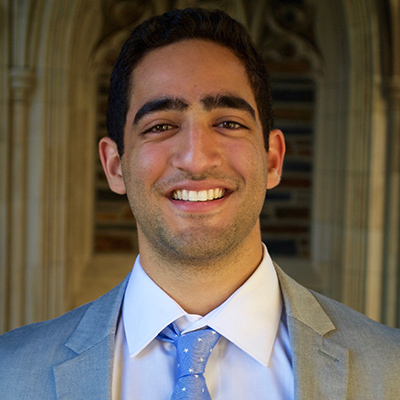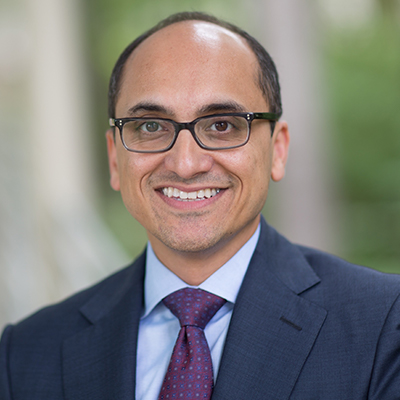Patient Assistance Programs: Do They Help or Hurt?

Duke University

Yousuf Zafar, MD
Associate Professor of Medicine and Public Policy,
Duke Cancer Institute
Guest Post By Rishi Sachdev and Yousuf Zafar, MD
Duke UniversityNew cancer drugs have improved prognoses for patients, but that improvement in effectiveness has come at a steep cost. The price tag of new anticancer drugs has been increasing at a significant pace, with the latest—Kymriah by Novartis—priced at $475,000 per treatment. These ever-increasing costs result in higher out-of-pocket costs for patients, which have been shown to worsen outcomes. Even with the existence of mandatory annual out-of-pocket maximums on insurance plans, the financial burden experienced during the course of treatment can result in patients altering their behavior and being non-adherent to treatment. This patient-level impact of the cost of cancer care has been referred to as financial toxicity.1
One way to avoid undue financial burden is through patient financial assistance programs that subsidize the cost of expensive medicines for patients. At first glance, forgiving a portion of the patient’s drug bill may seem like a reasonable solution—certainly, it helps some patients make ends meet while on treatment. But from a systemic perspective, patient financial assistance programs may be fraught with problems.2
First, it is vital to understand who funds most of these programs. In some cases, they are indeed run by charitable foundations. However, many foundations receive a large portion of their funds from the pharmaceutical industry.2 In practice, then, when patients seek financial assistance, pharma indirectly provides them with a discount toward their out-of-pocket expenses. A classic example of this phenomenon can be traced back to when Mylan raised the price of its EpiPen by $500 over 8 years.3 After experiencing public outrage, the company offered $300 subsidies to patients who used the product, which alleviated some burden, and offset the cost enough such that many patients still actively use the drug.4 However, the remaining cost to insurance was still high.5
Second, not all patients are likely to take advantage of financial assistance, especially in cases where they have lower literacy, or less agency to produce documentation and application materials to qualify for subsidies. Not only does this result in an unequal distribution of assistance, but it may exacerbate financial harm, especially in cases where insurance companies lack the necessary price signals to construct plans to properly account for financial need.7
Third, patient financial assistance programs do nothing to actually lower the price of drugs. Perhaps the most significant issue our healthcare system must confront in the face of cost-sharing is that the drugs are still exorbitantly expensive. Although the patient is not incurring the full brunt of the costs, we all ultimately pay through higher premiums as payers redistribute costs. Policy change might be less likely if the target consumers of these drugs feel no direct need to voice their concerns, due to the elimination of their out-of-pocket costs.
Yet, from a clinical perspective, if the opportunity exists for oncologists to alleviate the financial burden experienced by their patients, they must take it. While patient assistance programs present a Band Aid solution to a bigger problem, patients today should not be denied the potential for lower medical bills.
But where do we look for a better solution? A first step is encouraging insurers to consider value-based insurance design, where cost-sharing is eliminated for high-value care.8 If the cost-sharing paradigm is shifted for high-value care, patients could be saved from financial and downstream physical harm. Second, patient assistance programs should be targeted towards poorer patients who are most in need, and, finally, we must continue to advocate for pharmaceutical companies to lower drug prices to a more sustainable level. These steps could greatly alleviate the burden experienced by cancer patients.
Citations
- Zafar SY, Peppercorn JM, Schrag D, et al: The financial toxicity of cancer treatment: a pilot study assessing out-of-pocket expenses and the insured cancer patient’s experience. Oncologist 18:381-90, 2013. https://theoncologist.alphamedpress.org/content/18/4/381.full
- Elgin B, Langreth R: How big pharma uses charity programs to cover for drug price hikes: A billion-dollar system in which charitable giving is profitable. Bloomberg, May 19,2016. https://www.bloomberg.com/news/articles/2016-05-19/the-real-reason-big-pharma-wants-to-help-pay-for-your-prescription
- Pollack A: Mylan to offer some patients aid on cost of EpiPens, New York Times, August 25, 2016. https://www.nytimes.com/2016/08/26/business/epipen-mylan-price.html
- Ubel PA, Bach PB: Copay assistance for expensive drugs: A helping hand that raises costs. Ann Intern Med 165:878-879, 2016. https://annals.org/aim/article-abstract/2565940/copay-assistance-expensive-drugs-helping-hand-raises-costs
- Ross JS, Kesselheim AS: Prescription-drug coupons–no such thing as a free lunch. N Engl J Med 369:1188-9, 2013. https://www.nejm.org/doi/full/10.1056/NEJMp1301993
- Pollack A. Coupons for patients, but higher bills for insurers, New York Times, January 1, 2011. https://www.nytimes.com/2011/01/02/business/02coupon.html
- Choudhry NK, Lee JL, Agnew-Blais J, et al: Drug company-sponsored patient assistance programs: A viable safety net? Health Aff (Millwood) 28: 827-834, 2009. https://www.healthaffairs.org/doi/full/10.1377/hlthaff.28.3.827
- Chernew ME, Rosen AB, Fendrick AM: Value-based insurance design. Health Aff (Millwood) 26:w195-w203, 2007. https://www.healthaffairs.org/doi/full/10.1377/hlthaff.26.2.w195
About the Authors
Note: The views and opinions expressed in any guest post featured on our site are those of the guest author(s) and do not necessarily reflect the opinions and views of the National Coalition for Cancer Survivorship. Read our blog and comment policies here.




